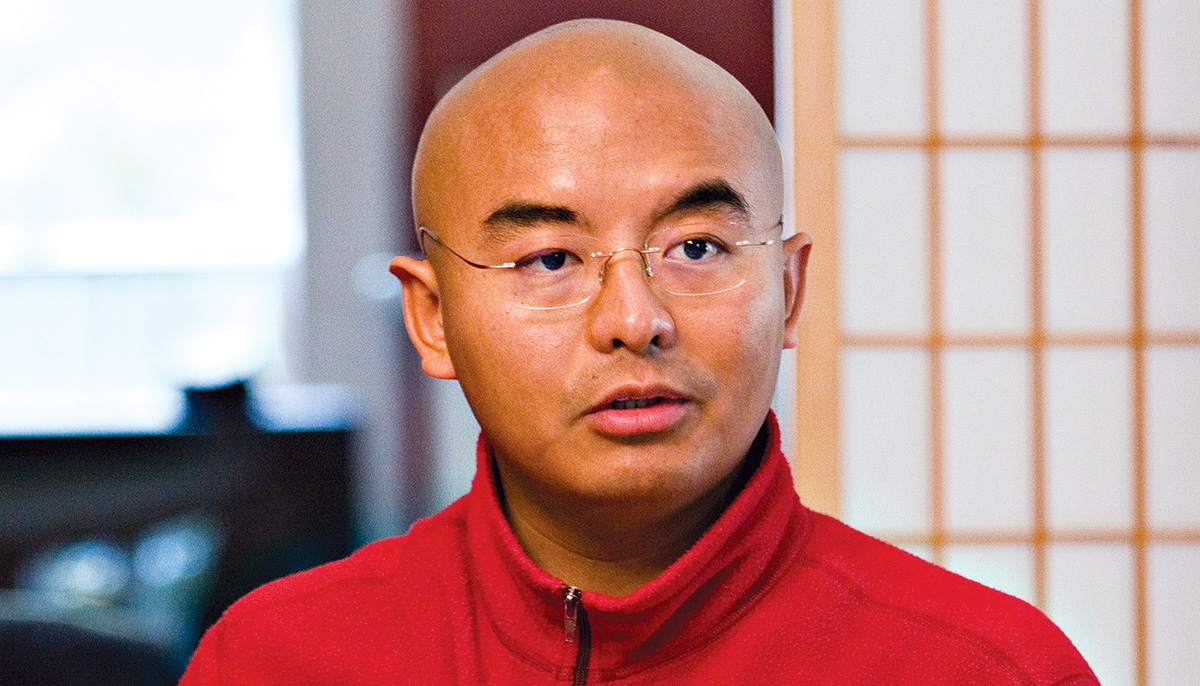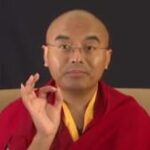When I think of the most important message that the Buddhist teachings might offer us in the decades to come, I naturally think back to the example of the Buddha himself.
When he was still a young man, the Buddha realized that his privileged life, though filled with pleasure and all the advantages of his status, left him feeling incomplete. No amount of power and wealth led to lasting contentment. As we all know, he eventually left the palace and set out to find what was missing.
For six years he sought out the great teachers of his time. He applied himself to their philosophies and subtle meditation techniques. He mastered them, yet was still unsatisfied. He had yet to find what he was looking for.
Eventually, he found his way to the banks of the Niranjan river determined to meditate until he found the answer. He had come up empty after six years spent living in forests, fasting for long periods, and meditating night and day. He had searched so hard, for so long, that he was out of options. He finally let go.
The Buddha discovered everything in that moment of letting go.
He’d looked everywhere for lasting happiness. He’d studied every philosophy, mastered every technique, and pushed his body and mind to the very edge. But the one thing that had never occurred to him was that he didn’t need to seek. That he already had everything he was looking for.
The key to this journey is appreciation.
So he finally let go and let himself rest, probably for the first time in years. He remembered a moment he had as a small boy sitting under a rose apple tree. He was not doing anything. Not going anywhere. Not waiting for a better experience to arrive. He was simply being.
In the days and weeks that followed, the soon-to-be Buddha discovered his own awakened nature—what we now call “buddhanature.” He had great compassion—and always had. Timeless awareness and deep wisdom were already there. The deep peace and serenity that he’d sought so desperately was part of his basic nature.
The message that I think Buddhism has to offer the world in this troubled century is the Buddha’s insight that we all have buddhanature.
In so many ways, we are just like the Buddha. We too find ourselves striving desperately to find meaning in our lives, to experience a little peace, pleasure, comfort, and security. We chase after fleeting experiences and place our full trust and confidence in them, with the hope that somehow, someday, they’ll lead us to lasting happiness. We try so hard to find success in worldly endeavors that never seem to pay off in the end.
Many of us then give up and turn to the spiritual path, but we approach it with all the striving and expectation the Buddha initially had. We assume that the problem is us, that we need a tool to remedy some basic flaw in our mind, and we then go to work using meditation to fix a perpetually imperfect present moment.
The Buddha learned that all this effort, even when it comes in a fancy “spiritual” package, strengthens our deep-rooted habit to see the present moment as a problem. But when all our effort and striving is based on this belief, we can just get stuck in a better version of samsara. We seem to be doing all the right things, but we never find our way out of the maze.
We all know what it feels like to be seeking and seeking, and never finding. It’s like drinking saltwater. It feels good for a moment, but leaves us even thirstier than we started.
The example I’ve always loved is the image of a bird looking for its nest. The bird might fly far away looking for food, but it will always return home. As long as it hasn’t found its way back to the nest, it will keep looking, and searching. But when the bird finally arrives, it has no doubts. The bird knows it’s home.
We are a lot like that bird trying to find its way home. We know that all the fleeting pleasures of life aren’t going to lead us to lasting happiness. We know our physical health is fragile, and our relationships and jobs will change. But no one is telling us where home is. All we can do is make our best guess, or keep looking in the same places with the hope that we’ll discover something new.
The Buddha is telling us where to look. He’s showing us where to find our true home, the place where we can finally rest with the confidence that our search is over.
The key to this journey is appreciation.
It might seem that appreciation has no place in a world with so many challenges. These days we are constantly reminded of our problems. Depression and anxiety are on the rise, climate change is creating disasters all over the world, and big changes in society are bringing to light so many things that have been in the shadows for many generations.
How could we possibly talk about appreciation when we are confronted with such massive challenges?
Appreciation isn’t positive thinking. It’s not wishing things to be better than they really are. Appreciation is taking the time to notice what’s already here, what we have right now in this very moment. This capacity gives us the inner strength to work with our suffering in a skillful way, and to stay connected to each other as we do.
There are so many qualities that we don’t give ourselves credit for. As the Buddha discovered, our minds are naturally clear and aware. Our hearts are naturally open and compassionate. Each of us has tremendous wisdom. Although we don’t always recognize it, this buddhanature is always with us.
Every single day we do countless things that express this buddhanature—small acts of compassion, moments of insight and understanding. These things are so common that we don’t even notice them.
Recognizing these qualities is like discovering a treasure that’s been buried right beneath our feet. What we discover might feel new and fresh, but it’s our discovery that is new, not the qualities themselves.
This discovery of our own buddhanature is the solution to the problems we face. It gives us the confidence, the compassion, and the wisdom to deal with our own challenges and the suffering of the world with an open heart and a clear mind.
When we make appreciation the foundation of our practice, every moment is filled with possibility.

